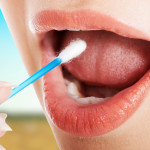By David Blyweiss, M.D., Advanced Natural Wellness
December 7, 2012
- Big pharma’s dirty little secret
- What nobody ever told you about antidepressant drugs
- Your first line of defense against depression
It never ceases to surprise me how many of my new patients are taking antidepressant drugs. Some of them haven’t even been to their previous doctor in year or more… but the refills keep rolling in like clockwork.
By the time these folks get to my office, they’re convinced they can’t survive without their “happy pills.” That’s when I talk to them about the cold, hard facts.
You see, in 2011 the prescription drug industry sold $11 billion worth of antidepressants totaling 264 million prescriptions. This number has increased 400 percent since 1988. So it’s something big pharma certainly doesn’t want you to know about.
Here’s the flat-out truth I give my patients…
Antidepressants have absolutely no scientifically-proven impact on your mental health.
I can imagine the expression on your face right now. You’ve got the same look of disbelief I see day after day and week after week. So let me tell you the whole story. And I promise – I won’t leave anything out…
Open your arteries, improve blood flow for a new health miracle...
Did you know your circulatory system has over 60,000 miles of arteries, veins and other blood vessels, if stretched end to end?
But as you age, your blood vessels undergo changes, which may cause them to stiffen, thicken and get clogged.
GOOD NEWS! Doctors have now identified a “Miracle Molecule” inside your arteries that helps OPEN your arteries and IMPROVE blood flow.
It’s what Dr. Valentin Fuster calls it, "One of the most important discoveries in the history of cardiovascular medicine."To you, that means...
- Healthy blood pressure
- Sharper mind and memory
- Skyrocketing energy and muscular strength
- Increased pleasure and passion in the bedroom
- Improved circulation to every cell and organ in your body
Go here to discover a new natural way to significantly boost the levels of this miracle molecule in YOUR body NOW!
It turns out studies citing the effectiveness of antidepressant drugs are skewed. And it’s not just a case of being a little bit slanted or off-center. I’m talking the whole nine yards.
This is the pharmaceutical industry’s dirty little secret. Even your own doctor is probably in the dark.
You see, big drug manufacturers have rigged the game at your expense. And each year they gain billions of dollars in profit from this deceitful trickery.
It’s something known as “selective publication.” And it’s probably one of the biggest reasons we see so many drug recalls these days.
In the case of antidepressant drugs the deception may be one of the worst we’ve ever seen.
Here’s what we’ve learned in recent years, thanks to an industrious group of researchers. Their astonishing results appeared in the England Journal of Medicine.1
The researchers managed to dig up 74 clinical-trial programs for 12 antidepressant drugs. Roughly half of the trials had positive results; the rest had negative outcomes. Some of the studies were published, others weren’t.
Are You Suffering From...
- Love handles and a pot belly
- Romance that isn't what it used to
- Forgetfulness and inattention
- Low (or no) strength and endurance
- A sex drive that's shifted into neutral...or worse
If so...you may have Mature Male Burnout. Click here to discover more about this unique condition and what you can do about it.
That’s where it gets really interesting. An impressive 97 percent of the positive trials were published. But only 38 percent of the negative outcomes made it to publication.
And not only were positive results more likely to be published, the negative trials that did make it to publication were often reported in a way that conveyed a positive outcome.
So if you only look at published data, it appears antidepressants are a whopping success. But imagine what happens if you add in all the negative studies that never got published; and adjust the outcomes on the ones with twisted results.
You end up with an entirely different picture. Instead of almost guaranteed positive results, the new picture says there is only a 50/50 chance these drugs may work.
In other words, taking an antidepressant is no different than tossing a coin!
However, the story doesn’t end here…
There is more research and similar studies. The details may not be as eye-opening but they are just as revealing. In a meta-analysis using both published and non-published trials, researchers discovered placebos work almost as well as antidepressant drugs. The results in the drug subjects were duplicated more than 80 percent in the matching placebo group.2
The authors of this analysis reported “the effect of four of today’s top antidepressants is below clinical significance.”
As a physician I find this news both frightening and infuriating. Suppressing negative studies makes the entire medical industry appear fraudulent. And that’s something I want no part in. Especially when there are plenty of less harmful ways to treat and prevent depression…
The first line of defense for the management of depression is exercise. I suggest a combination of aerobics, strength training and intensity exercise. Even as little as 15 minutes of exercise a day can help improve your mood.
Use the buddy-system or set up a structured workout to improve your participation. But don’t wait to get started. Study after study shows the positive results of exercise on depressive symptoms.3 So the sooner you get started, the more quickly you’ll feel the results.
I also recommend checking your diet. Diets loaded with processed and fried foods, refined grains and high-fat dairy products increase your odds of depression. Eating more whole foods, like vegetables, fruits, whole grains and omega-3 rich fish decrease those odds considerably.4
Boosting your vitamin D levels helps too. Just 15 minutes of sunlight a day can help restore your precious vitamin D stores. If you live in the northern climates and lack sufficient sunshine this time of year, try a vitamin D supplement. Higher vitamin D levels can significantly reduce your risk of depression.5
Other supplements that can help include SAMe, St. John’s wort and omega-3 fish oils. I like all of these. Here’s why…
St. John’s wort. Studies comparing St. John’s wort to some of today’s most popular antidepressants show it’s more effective. Plus, it has fewer side effects. Other research also indicates taking St. John’s wort improves the chances of your depression going into remission.6 7 For best results try 600 to 1,200 mg daily of a standardized herbal extract containing of 0.3% hypericin.
SAMe (S-adenosylmethionine) has a long history of treating depression by boosting dopamine levels. It’s so effective a recent study found SAMe even helps ease depression in people who don’t respond to a class of antidepressants known as SSRIs.8 Since it has few side effects and acts quickly – often within a week – I recommend taking 1,600 mg daily.
Omega-3 fatty acids. Of particular interest are the omega-3 fatty acids found in fish oil – eicosapentaenoic acid (EPA) and docosahexaenoic acid (DHA.) Studies have now linked low levels of these fatty acids with risk of suicide. Thoughts of death or suicide often accompany depression.
In one report, risk of suicide death was 62 percent greater in men with lower DHA levels.9 So getting plenty of omega-3’s is vitally important to your mental status. Opt for pure marine fish oil and take 3,000 mg. daily.
Once you get started on these depression-busting techniques you can begin working with your doctor to wean you off of your current antidepressant drug.
- Turner EH, Matthews AM, Linardatos E, et al. Selective publication of antidepressant trials and its influence on apparent efficacy. N Engl J Med. 2008;358(3):252–260.
- Kirsch I, Deacon BJ, Huedo-Medina TB, Scoboria A, Moore TJ, Johnson BT. Initial severity and antidepressant benefits: a meta-analysis of data submitted to the Food and Drug Administration. PLoS Med. 2008 Feb;5(2):e45.
- Ströhle A. Physical activity, exercise, depression and anxiety disorders. J Neural Transm. 2009 Jun;116(6):777-84.
- Akbaraly TN, Brunner EJ, Ferrie JE, Marmot MG, Kivimaki M, Singh-Manoux A. Dietary pattern and depressive symptoms in middle age. Br J Psychiatry. 2009 Nov;195(5):408-13.
- Hoang MT, Defina LF, Willis BL, Leonard DS, Weiner MF, Brown ES. Association between low serum 25-hydroxyvitamin D and depression in a large sample of healthy adults: the Cooper Center longitudinal study. Mayo Clin Proc. 2011 Nov;86(11):1050-5.
- Singer A, Schmidt M, Hauke W, Stade K. Duration of response after treatment of mild to moderate depression with Hypericum extract STW 3-VI, citalopram and placebo: a reanalysis of data from a controlled clinical trial. Phytomedicine. 2011 Jun 15;18(8-9):739-42.
- Kasper S, Gastpar M, Müller WE, Volz HP, Dienel A, Kieser M, Möller HJ. Efficacy of St. John’s wort extract WS 5570 in acute treatment of mild depression: a reanalysis of data from controlled clinical trials. Eur Arch Psychiatry Clin Neurosci. 2008 Feb;258(1):59-63.
- Papakostas GI. S-Adenosyl Methionine (SAMe) Augmentation of Serotonin Reuptake Inhibitors for Antidepressant Nonresponders With Major Depressive Disorder: A Double-Blind, Randomized Clinical Trial. American Journal of Psychiatry. 2010; 167:942-948.
- Lewis MD, Hibbeln JR, Johnson JE, Lin YH, Hyun DY, Loewke JD. Suicide deaths of active-duty US military and omega-3 fatty-acid status: a case-control comparison. J Clin Psychiatry. 2011 Dec;72(12):1585-90.






